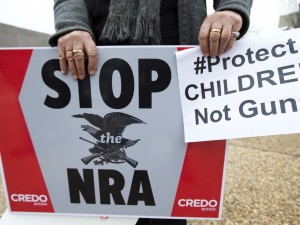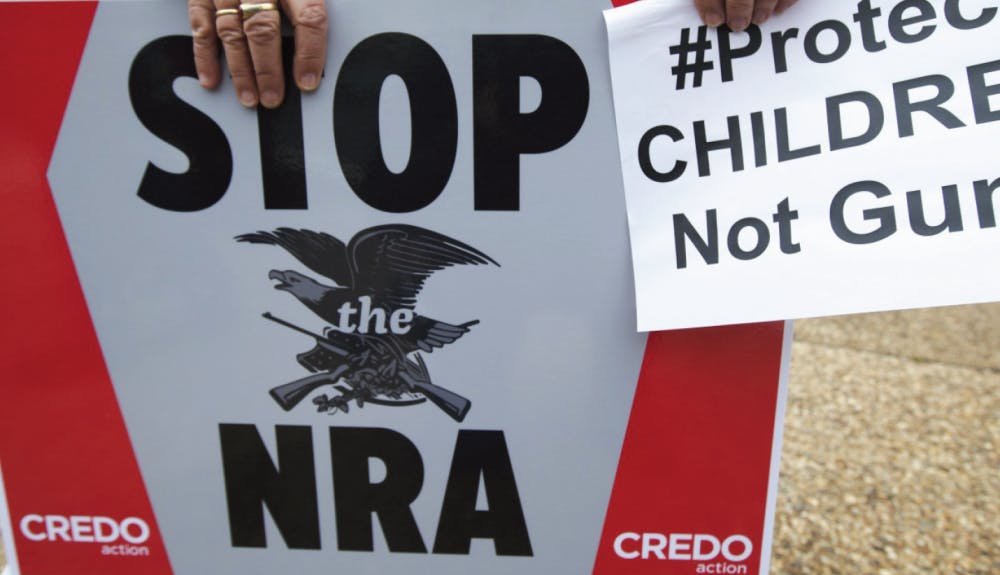By Jacqia Scotton
When I began writing this editorial, 11 school shootings had been recorded this year. Four days later, that number has already increased.

Liberty Technology Magnet High School, Hillhouse High School, Albany High School, Widener University and Purdue University are some of the schools on the growing list of 2014 school shootings.
Schools are not the only place experiencing gun violence. A Columbia Maryland Mall was attacked by a lone gunman that ended in the deaths of two innocent shoppers, and the suspected gunman himself.
In Omaha, Neb., a 5-year-old was hit by a stray bullet and killed while eating breakfast before a school day she would never attend.
Gun-related deaths due to home invasions, accidental shootings, domestic disputes and even suicides have killed countless more, just a month into the new year.
So, I must pose the ever present (and controversial) question lingering on the lips of lawmakers and citizens alike: What does this say about the United States’ current gun control policies?
Since the Sandy Hook Elementary School shooting, the second deadliest mass shooting in American History (after Virginia Tech in 2007), there have been over 9,900 gun related deaths in the United States.
However, according to Slate, this is a gross underestimate. The news outlet reported that with suicides, the estimate is closer to over 30,000 gun-related deaths since the Newtown tragedy. This works out to about 90 people per day.
During the 2013 memorial service for the 12 people killed at the Washington Navy Yard, President Obama acknowledged his failure to get new gun control laws passed and vowed to “work as hard as possible for the sake of our children.”
It remains painfully obvious that he will be met with extreme force from the National Rifle Association and their proponents.
Wayne LaPierre, the NRA’s executive director, feels that gun control is not the answer to this problem. In a recent interview, LaPierre was quoted saying that “We can’t lose precious time debating legislation that won’t work … the only thing that stops a bad guy with a gun is a good guy with a gun.”
However, there is all too much evidence that shows there are too many “bad guys” with guns in the first place. So why not try for some restriction on guns?
Based on an analysis of 2007-2010 gun-related homicides and suicides, CBS reported that states with the most gun-restrictive laws had a 42 percent lower gun rate than states with the least number of laws.
Although some gun advocates argue that strict gun laws have failed in high-crime cities like Chicago and Washington, D.C., state laws are not as effective when neighboring states have lax laws.
Beyond looking at laws across state lines, we should take notes from other developed countries with strict gun laws. The United States has more guns and gun deaths than any other developed country in the world.
Per 100 people, France had 31.2, Israel, 7.3, Turkey 12.5 and Japan, which had the lowest, saw just 0.6 deaths per 100. The United States had 88. Just behind the United States was Switzerland with 45.7 deaths — almost less than half of what we did.
When countries come out with fast cars, new computers and sleeker electronics, don’t we long for them? So why not long for reform that has proven to work?
Whichever side you decide to take, U.S. gun facts are painfully clear.
On average, 32 Americans are murdered by guns every day, and 140 are treated for gun assault in an emergency room. Eight of these are children and teens under the age of 20.
A gun in a home is 22 times more likely to be used in murder, unintentional shooting or suicide than to be used in self-defense. One in four Americans have witnessed a shooting.
Don’t we regulate cars, medicine and toys? Why shouldn’t we take steps to regulate gun violence?
Unfortunately, the argument behind gun control has become more and more of a political agenda and less of a concern of protection of American citizens.
The issue behind gun control has morphed into the figurative elephant in the room. We keep saying, “it’s not the right time,” and continue to sweep it under the rug.
But it cannot be any clearer, and it’s extremely vital that we press for gun control before more schools and malls and homes become morgues.
Guns are most certainly not the only factor in these shootings, the person behind it obviously contributes — but if we can restrict their access to these deadly weapons, it may be the first step in decreasing the violence our country knows all too well.







